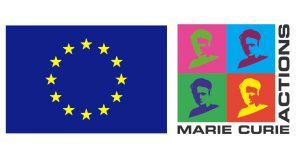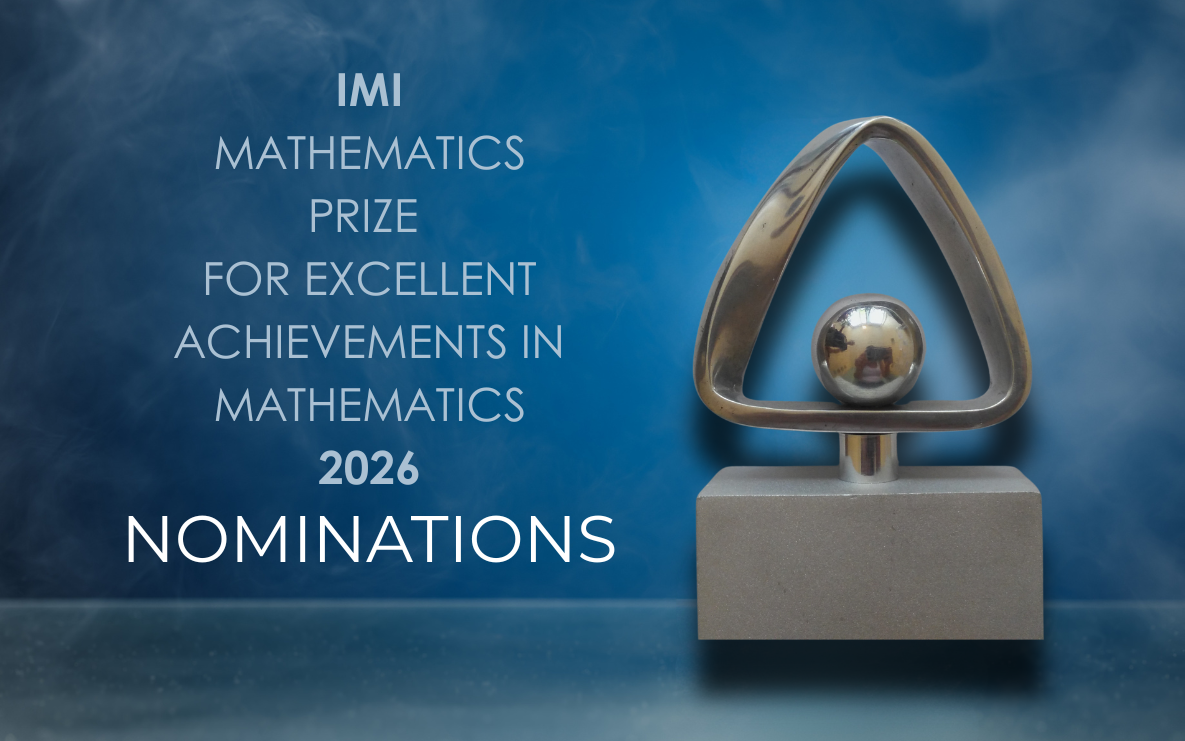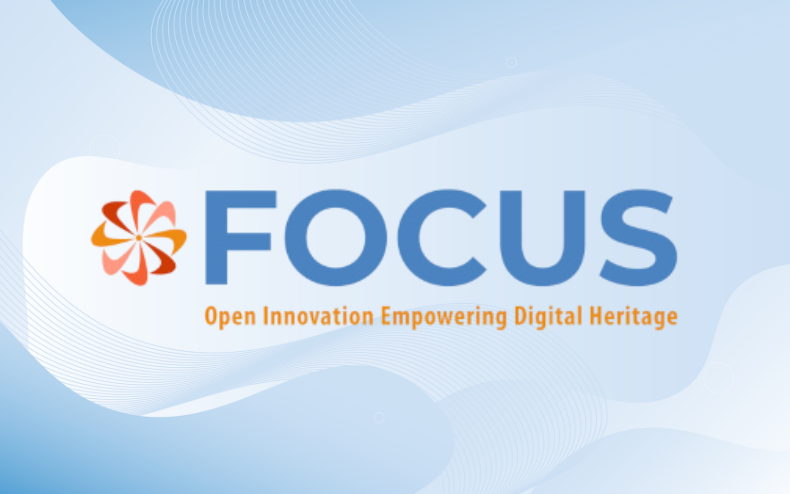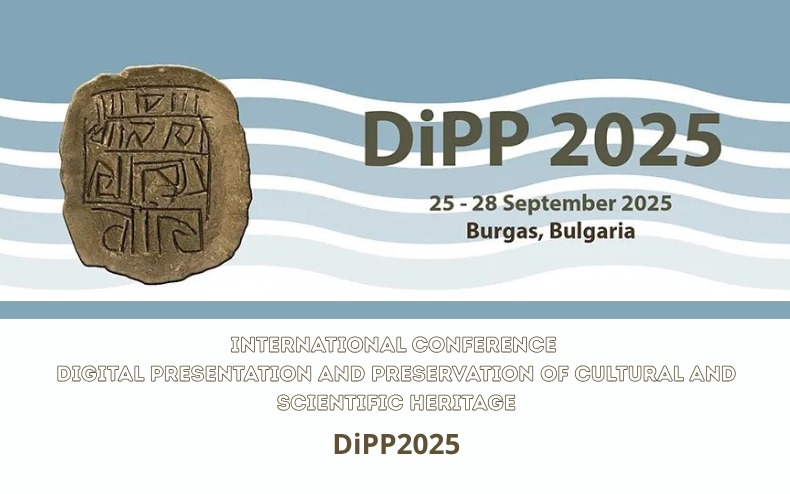 The department “Mathematical Foundations of Informatics” (MFI) of the Institute of Mathematics and Informatics of the Bulgarian Academy of Sciences welcomes expression of interest by postdoctoral researchers, offering to host highly motivated mathematicians and computer scientists, who wish to apply for a Marie Skłodowska Curie Individual Fellowship or a National Scientific Program “P. Beron” Fellowship. Successful candidates will be affiliated with the International Center for Mathematical Sciences, Sofia (ICMS-Sofia), which is part of the Institute of Mathematics and Informatics.
The department “Mathematical Foundations of Informatics” (MFI) of the Institute of Mathematics and Informatics of the Bulgarian Academy of Sciences welcomes expression of interest by postdoctoral researchers, offering to host highly motivated mathematicians and computer scientists, who wish to apply for a Marie Skłodowska Curie Individual Fellowship or a National Scientific Program “P. Beron” Fellowship. Successful candidates will be affiliated with the International Center for Mathematical Sciences, Sofia (ICMS-Sofia), which is part of the Institute of Mathematics and Informatics.
The main activities of MFI are research, applications and training in coding theory, combinatorics, computer algebra, and theoretical computer science. The research group supports its activities with project-based funding, both from state and European funding mechanisms. It is recipient of several grants from the Bulgarian National Science Fund and different European operational and framework programmes, as well as COST actions.
MFI has excellent gender balance and experience distribution and maintains a diverse, inclusive and dynamic work environment, focused on pure and applied research.
MFI has carried out research, innovation and expert activities in the different fields, as the current research priorities of the department are optimal codes, bounds for codes and designs in polynomials metric spaces, cryptography, combinatorics and finite geometries.
Optimal Codes
Error-correcting codes have practical applications in many spheres of life such as information technology, communications, control systems, etc. In a series of papers starting from late 70’s a number of important properties of optimal linear codes were proved leading to classification results for both binary and q-ary cases. Apart from pure mathematical results specialized software was developed to strengthen the research capabilities in the field. The investigations in the field continue with new constructions and nonexistence results are proved in different cases, ensuring further classification. Recent projects develop tools created by the team initially for investigations of optimal codes for use in combinatorics and cryptography. The research in this area will be supervised by Prof. Iliya Bouyukliev.
Bounds for codes and designs in polynomials metric spaces (PM-spaces).
Since the early 90’s a number of results have been generated in an investigation of universal bounds for codes in PM-spaces including as major examples the Euclidean spheres, projective spaces, the Hamming and Johnson spaces. The group has proved necessary and sufficient conditions for the optimality of universal bounds and developed methods for deriving new bounds when certain universal bounds are not optimal. These results were applied in maximum code problems and minimum energy problems coming from coding theory and potential theory, respectively. Recent projects include obtaining bounds for codes of prescribed minimum distance and diameter, and for codes of given cardinality and separation. The research in this area will be supervised by Prof. Peter Boyvalenkov.
Cryptographically strong S-boxes
Cryptography, unlike many other mathematical fields, does not have a unified structure and apparatus. Rather it is defined by its application. It searches and adopts any piece of mathematical theory that can serve as the backbone of cryptographic primitives – low-level cryptographic algorithms that are frequently used to build cryptographic protocols for computer security systems. The research group prioritizes the development of cryptographically strong S-boxes, striving to create a mathematical toolkit that contains essential building blocks addressing both the urgent societal challenges in information security and enabling future development in the field. MFI has focused its efforts towards research and improvement of the existing theory for the construction of s-boxes, where it has designed novel heuristic algorithms. It is also developing the theory behind error-correcting codes with possible cryptographic importance. The research in this area will be supervised by Prof. Tsonka Baicheva.
Combinatorics and finite geometry related to coding theory and cryptography.
Combinatorial designs and their resolutions are closely related to numerous objects in computer science and coding theory in particular. For instance, Steiner triple systems exist in perfect codes, resolvable Steiner systems are used to construct LDPC codes, symmetric designs and their doubles can yield self-orthogonal codes, some cyclic designs correspond to optical orthogonal codes, design resolutions are equivalent to constant weight codes, etc. Designs have also shown numerous cryptographic applications. Resolvable and doubly resolvable designs are closely related to secret sharing schemes, t-spreads in projective spaces are related to linear cyphers, and t-parallelisms of projective spaces are used in anonymous threshold schemes. MFI has obtained numerous classification results about combinatorial designs with given automorphisms, design resolutions, spreads and parallelisms of projective spaces, designs with definite sub designs, doubly resolvable designs, orthogonal resolutions and multiple designs. The research in this area will be supervised by Prof. Svetlana Topalova and/or Assoc. Prof. Stela Zhelezova.
Finite geometries and their applications to coding theory
We consider finite geometries over nice structures like finite fields and finite chainrings. Many problems on special sets of points in such geometries (arcs, blocking sets, caps, spreads etc.) translate in a straightforward way into problems about codes. Of special interest are the projective geometries over finite chain rings which are the subject of extensive research in the last two decades. Our research is focused on (but not limited to) the following problems: construction of optimal arcs, blocking sets, caps in PG(n,q), as well as in the projective Hjelmslev geometries, q- and R-analogs of designs, ring analogues of classical results from extremal set theory, construction of codes meeting classical bounds in coding theory, research on interesting families of codes, network codes and their connection with classical geometric structures. The research in this area will be supervised by Prof. Ivan Landjev.
Young researchers, interested in applying for a fellowship and work in one of the above fields under the guidance of an experienced researcher should send a CV and list of publications to director@math.bas.bg with a copy to peter@math.bas.bg.









